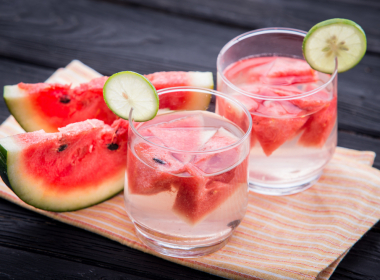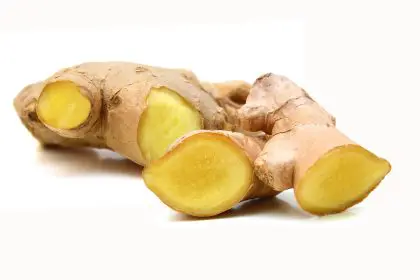That garlic-heavy pasta you’re craving might seem like an innocent dinner choice, but it’s actually launching a 48-hour chemical transformation that will affect how you smell, how your skin looks, and even how attractive other people find you. Your body is constantly broadcasting information about your diet through your scent and appearance in ways that are far more dramatic than most people realize.
Every bite you take triggers a complex cascade of metabolic processes that eventually show up in your sweat, breath, and skin quality. Some foods make you smell like a walking perfume counter while others turn you into someone people unconsciously want to avoid. The scary part is that you might not even notice these changes happening to yourself.
Your skin and scent are essentially billboards advertising your recent eating choices to everyone around you. While you’re focusing on calories and nutrition labels, your body is busy converting your meals into aromatic compounds that will be seeping out of your pores for days to come.
Why your body turns food into perfume or poison
When you eat, your digestive system breaks down food into thousands of different chemical compounds, many of which eventually make their way into your bloodstream and get filtered through your lungs, liver, and skin. These metabolic byproducts don’t just disappear, they get expelled through your breath, sweat, and even the natural oils your skin produces.
Some foods contain volatile compounds that your body can’t fully process or neutralize, so they get released largely unchanged through your pores and respiratory system. This is why you can smell garlic on someone’s breath hours after they’ve eaten it, the sulfur compounds are still being actively expelled from their system.
Your skin acts like a slow-release system for food-derived compounds, continuing to emit scents and display the effects of your dietary choices long after you’ve finished eating. The oils produced by your sebaceous glands carry these compounds to the surface, where they interact with bacteria and environmental factors to create your unique scent signature.
The speed and intensity of these effects depend on your individual metabolism, hydration levels, stress hormones, and even your genetic makeup. Some people can eat pungent foods with minimal scent impact, while others become walking advertisements for their last meal within hours.
The foods that make you smell like trouble
Cruciferous vegetables like broccoli, cauliflower, and Brussels sprouts contain sulfur compounds that can make your sweat and breath smell distinctly unpleasant for up to 48 hours after consumption. These same compounds are incredibly healthy for you, but they turn your body into a sulfur processing plant that broadcasts its work to everyone nearby.
Red meat, especially when consumed in large quantities, can create a distinctly musky, sometimes unpleasant body odor that develops over several hours and can persist for days. The high protein content requires intensive metabolic processing that produces ammonia and other nitrogen-containing compounds that get expelled through your skin.
Alcohol doesn’t just affect your breath, it actually changes your entire scent profile as your body works to metabolize and eliminate it. The process can take 12-24 hours, during which time you’ll be emitting alcoholic compounds through your pores that create a distinctly stale, sometimes sour smell.
Processed foods high in preservatives, artificial flavors, and chemical additives can create complex, often unpleasant body odors as your system struggles to process synthetic compounds. These artificial ingredients often get partially broken down into metabolites that your body doesn’t know how to handle efficiently.
The secret foods that make you irresistibly fragrant
Fresh herbs like parsley, mint, cilantro, and basil contain natural compounds that can actually improve your body odor by neutralizing other smells and adding pleasant aromatic notes to your natural scent. These herbs work like internal deodorizers, helping to counteract the effects of less pleasant foods.
Citrus fruits flood your system with natural acids and aromatic compounds that can make your skin smell fresh and clean. The vitamin C and citric acid help support your body’s natural detoxification processes while adding subtle, pleasant notes to your scent profile.
Green tea consumption can actually reduce body odor intensity while adding subtle, clean aromatic compounds to your system. The polyphenols in green tea help neutralize odor-causing bacteria and support liver function, which improves your body’s ability to process and eliminate waste products.
Yogurt and other fermented foods containing beneficial probiotics can improve your digestive health in ways that reduce unpleasant body odors. Better gut bacteria balance means more efficient processing of foods and fewer putrefaction byproducts that contribute to unpleasant scents.
How certain foods make your skin glow from within
Beta-carotene rich foods like carrots, sweet potatoes, and leafy greens literally change your skin color, giving you a subtle golden glow that people find more attractive than pale skin or even a tan. This effect builds up over weeks of consistent consumption and creates a natural radiance that can’t be faked with makeup.
Antioxidant-rich berries flood your system with compounds that protect skin cells from damage while supporting collagen production. The anthocyanins and other pigments in dark berries can actually improve skin tone and clarity from the inside out, creating a natural luminosity that becomes visible within days.
Healthy fats from sources like avocados, nuts, and fatty fish provide the building blocks your skin needs to maintain its barrier function and natural moisture levels. These fats get incorporated into cell membranes throughout your body, including skin cells, creating a plump, healthy appearance that glows with vitality.
Water-rich foods like cucumbers, watermelon, and tomatoes help maintain optimal hydration levels that show up as improved skin texture and reduced fine lines. Proper hydration from food sources is often more effective than just drinking water because it comes with electrolytes and other compounds that help your body retain moisture.
The timing tricks that maximize food’s beauty effects
Eating antioxidant-rich foods before sun exposure can provide internal protection against UV damage while enhancing your skin’s natural glow. The compounds need time to circulate through your system, so consuming them 30-60 minutes before going outside maximizes their protective effects.
Having probiotic foods on an empty stomach allows beneficial bacteria to colonize your digestive system more effectively, leading to better nutrient absorption and reduced inflammation that shows up as clearer, more radiant skin.
Spacing out consumption of strong-smelling foods can help prevent compound buildup that leads to persistent odors. Instead of eating large amounts of garlic or onions at once, smaller amounts spread throughout the day are less likely to create overwhelming scent effects.
Consuming aromatic herbs and spices with meals helps them work more effectively as natural deodorizers. The digestive process allows these compounds to be absorbed and distributed throughout your system more efficiently than eating them alone.
Why hydration amplifies every food’s effects
Proper hydration doesn’t just affect how your skin looks, it dramatically influences how food-derived compounds are processed and eliminated from your body. When you’re dehydrated, waste products and aromatic compounds become more concentrated, intensifying both pleasant and unpleasant effects.
Well-hydrated skin is more effective at regulating the release of scent compounds, allowing pleasant aromas to emerge while helping flush out unwanted odors more quickly. Dehydrated skin tends to trap compounds longer, creating more persistent and often more intense scent effects.
Water helps your liver and kidneys process dietary compounds more efficiently, reducing the likelihood that partially processed metabolites will create unpleasant odors. Better hydration equals better detoxification, which translates to better natural scent.
The quality of your hydration also matters. Pure water works better than caffeinated or sugary beverages, which can actually interfere with your body’s natural processing of food compounds and create their own scent effects.
The foods that work like natural deodorant
Wheatgrass and chlorophyll-rich foods act as internal deodorizers by neutralizing odor-causing compounds before they can be expelled through your skin. These green foods essentially clean your system from the inside out, reducing overall body odor intensity.
Fennel seeds and other aromatic spices contain compounds that get absorbed into your bloodstream and can actually make your sweat smell pleasant. These natural aromatics work like edible perfume, infusing your system with fragrant compounds that emerge through your pores.
Lemon water consumed regularly can help alkalize your system and reduce the production of odor-causing bacteria throughout your body. The citric acid helps balance your internal pH while the aromatic compounds add subtle, clean notes to your natural scent.
Zinc-rich foods like pumpkin seeds and oysters help regulate the bacteria that live on your skin and contribute to body odor. Adequate zinc levels mean better bacterial balance, which translates to more pleasant natural scent.
The surprising connection between gut health and glow
Your digestive system health directly affects both your scent and your skin appearance because poor gut function leads to the production of toxic compounds that get eliminated through your skin. A healthy gut means fewer waste products trying to escape through your pores.
Fermented foods support beneficial gut bacteria that improve nutrient absorption and reduce inflammation throughout your body. This improved internal environment shows up as clearer skin, better natural scent, and an overall healthier appearance.
Fiber-rich foods help your digestive system eliminate waste more efficiently, reducing the buildup of compounds that can cause unpleasant body odors. Better elimination means fewer toxins circulating through your system and trying to escape through your skin.
Foods that reduce gut inflammation, like turmeric and ginger, can dramatically improve both skin appearance and body odor by addressing the root causes of systemic inflammation that affect your entire body’s function.
The 48-hour transformation timeline
Within 2-4 hours of eating aromatic foods, you’ll start noticing changes in your breath and immediate scent profile as volatile compounds begin circulating through your bloodstream. This is when garlic breath kicks in and why mint can provide quick freshening effects.
At 8-12 hours post-meal, compounds begin emerging through your skin as your body works to eliminate metabolic byproducts. This is when the deeper scent changes start becoming noticeable to others, even if you can’t smell them yourself.
The 24-48 hour window is when food effects reach their peak intensity for both positive and negative scent changes. This is also when skin improvements from beneficial foods become most visible, as nutrients have had time to be incorporated into cellular processes.
Beyond 48 hours, most food-derived scent effects begin fading unless you continue consuming the same foods. However, skin improvements from nutrient-dense foods can continue building over weeks and months of consistent consumption.
Your plate is your beauty routine
Every meal is an opportunity to either enhance or sabotage your natural attractiveness through the scent and skin effects of your food choices. Understanding these connections gives you the power to literally eat your way to better natural fragrance and glowing skin.
The foods that make you smell and look your best aren’t necessarily the ones that taste the best or satisfy immediate cravings. Sometimes the path to natural beauty requires making choices that prioritize long-term effects over short-term pleasure.
Your body is constantly advertising your lifestyle choices through your scent and appearance. Taking control of these food-beauty connections means you can influence how others perceive and respond to you in ways that go far beyond conventional beauty routines.
















